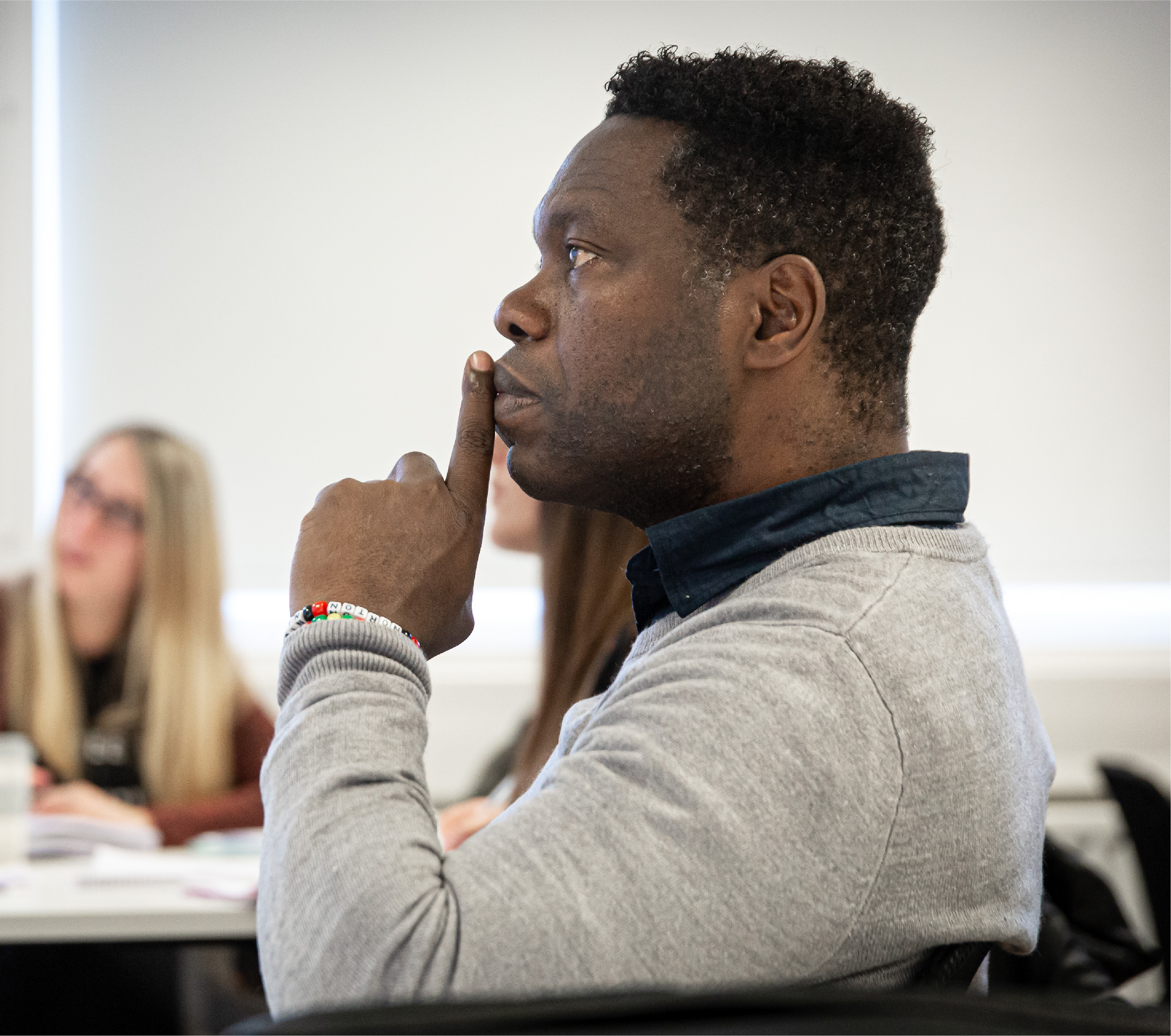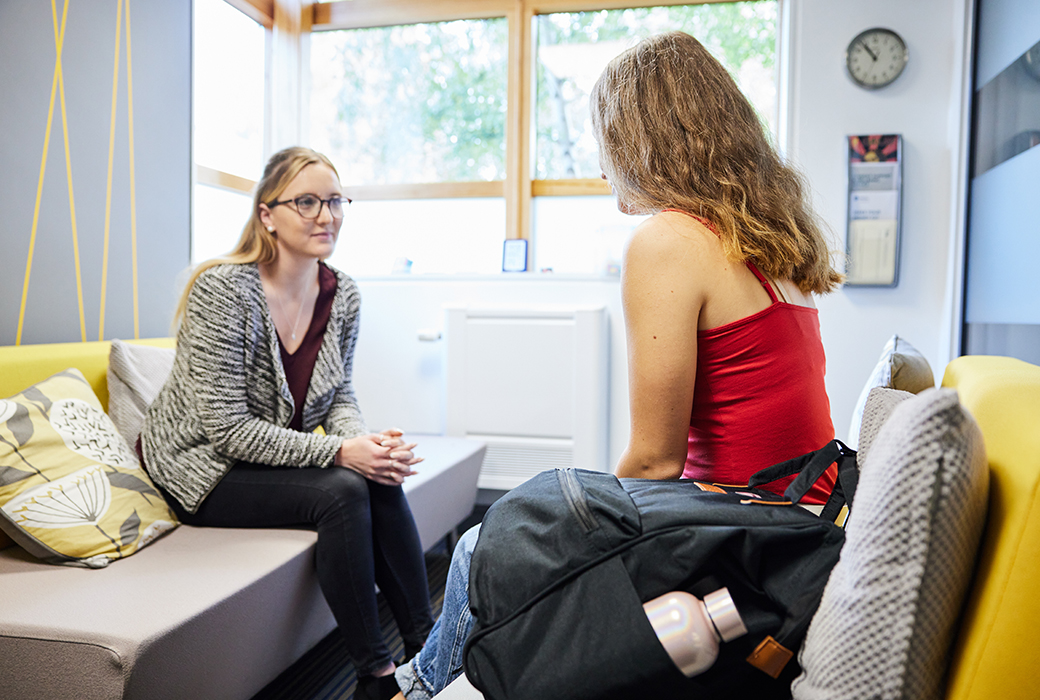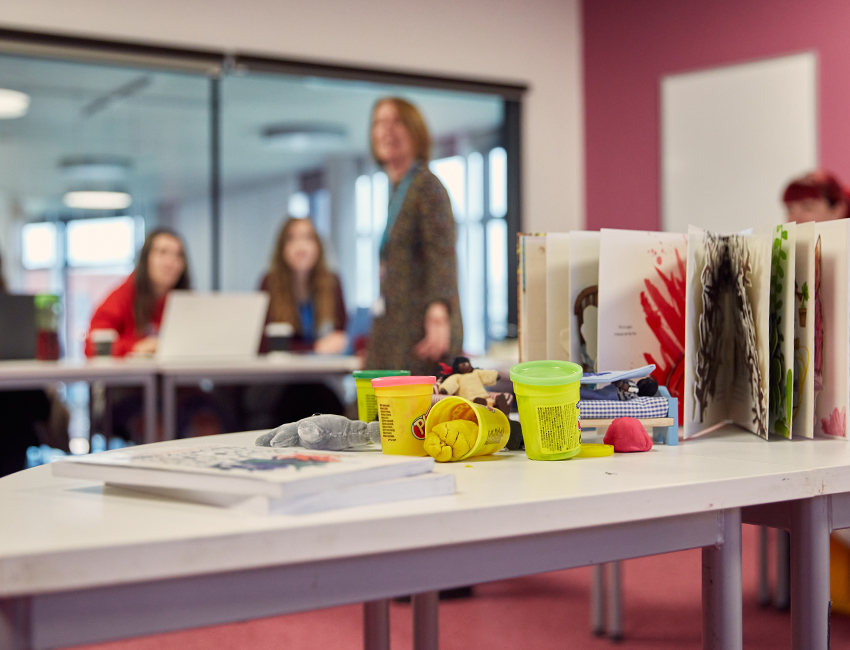At Worcester you’ll learn from psychology and mental health experts. Build practical skills in simulated sessions, gain real‑world experience and shape the type of psychologist you want to become.
The course is professionally accredited by the British Psychological Society (BPS) and, providing you achieve at least a 2:2 in your degree, you will be eligible for Graduate Membership of the BPS and the Graduate Basis for Chartered Membership (GBC), the first step to becoming a Chartered Psychologist.
BPS accreditation is both an important hallmark of quality that is extensively acknowledged by employers in the field, and an essential stepping-stone if you are looking to progress to become a Chartered Psychologist after graduation.
Taking a BPS accredited course is necessary if you wish to pursue a career in psychology or in the wider psychological workforce. For information on the benefits of studying an accredited course, visit the BPS website.
University of the Year finalist
Recognised for our graduate success, we’re shortlisted for University of the Year in the Times Higher Education Awards 2025.
Overview
Throughout the course, you’ll look at key influences on mental health, including family life, education, physical health, social pressures, and community environments. You’ll also learn how to spot early signs of concern, how to respond safely and effectively, and how to promote resilience and wellbeing in everyday settings.
In your third year, you will have the opportunity to complete 40 placement hours. With our support, you’ll have the flexibility to choose settings that match your interests. This experience helps you connect what you learn in lectures to real situations and builds the confidence that will help you in your career.
You’ll be taught by a friendly team of specialists with experience in education, early years, health and social care, and child mental health. They’ll help you develop strong communication and self-awareness skills while growing your understanding of the evidence behind effective mental health support.
If you want to specialise on a particular field within Psychology, you'll have the opportunity to follow one of our Psychology pathways: Psychology with Mental Health Practice BSc (Hons), Psychology with Sport and Exercise Studies BSc (Hons) and Psychology with Criminal and Forensic Contexts BSc (Hons).
Placements
Work-based learning is central to this course. You’ll complete a minimum of 40 hours of placement in your final year, which could include:
- Schools
- Early years settings
- Family support teams
- Community organisations
- Charities that work directly with children and young people
Your placements give you the chance to apply what you've learnt in lectures to practice, be able to speak to working professionals and learn from them, enabling you to gain a deeper awareness of the various roles and working environments within the profession and be able to reflex on your experience and apply that to your work and career aspirations.
You’ll be supported by our Careers and Employability team in arranging paid and voluntary placements with many local and national organisations. Recent placement opportunities have included the NHS, the British Psychological Society (BPS) and Mind, a mental health charity.
You can also choose to participate in psychological research or join our paid ‘students as researchers’ scheme, which will provide you with opportunities to work alongside staff on live projects.
Course content
Alongside core psychology modules that build your subject knowledge and research skills, our child and young people’s mental health modules explore key issues such as vulnerability, wellbeing, and effective mental health interventions
We regularly review our courses to reflect the latest research and developments in the subject area, as well as feedback from students, employers and the wider sector. As a result, modules may change to ensure the course remains current and relevant.
Careers
After graduation, you can gain the BPS Graduate Basis for Chartered Membership, giving you a clear route into professional psychology training. Or, you can use your wide range of transferable skills such as numeracy, digital skills, communication and problem‑solving to progress into a range of different careers.
Our graduates are highly successful in securing a career in various specialist areas such as:
- Practicing psychologist
- Psychotherapist
- Counsellor
- Guidance counsellor or life coach
- Private and public healthcare
- Government and policy
Specialisms
To practice as a psychologist, you'll need to complete an accredited postgraduate qualification in your chosen specialism, these include:
- Clinical psychology
- Counselling psychology
- Educational psychology
- Forensic psychology
- Occupational psychology
- Sport and exercise psychology
You can find out more about the different specialisms and postgraduate training from the British Psychological Society (BPS).
You could also progress onto further study into courses such as our Counselling MSc, Business Psychology MSc, Occupational Psychology MSc, Occupational Therapy (Pre-registration) MSc, Mental Health and Wellbeing Practitioner in Specialist Adult Mental Health (PG Cert/ Grad Cert).
Course highlights
Teaching and assessment
Through a mix of taught classes, work-based learning and assessments, this course is designed to provide you with a platform for achieving Graduate Basis for Chartered Membership within psychology, and have the skills and experience needed to move into a wide-range of jobs.
Teaching and assessment contents
You are taught through a combination of interactive workshops, lectures, seminars practical activities, etc. Interactive workshops take a variety of formats and are intended to enable the application of learning through discussion and small group activities. Seminars enable the discussion and development of understanding of topics covered in lectures, and laboratory practical's are focused on developing subject-specific skills and applied for individual and group project work. Most teaching sessions are face to face on campus although a blended approach will be taken. Lectures or lecture workshops for some modules will be delivered online either ‘live’ or pre-recorded.
Each work-based learning module requires the completion of a minimum of 100 hours of work-based learning. Students will identify and apply for placement in an area of relevant practice that interests them. The timing of practice-based learning will allow for some flexibility, although it is essential that certain parameters are met to ensure opportunities to link university-based learning to practice, facilitate reflection on work-based learning and ensure that assessment deadlines can be met.
In addition, meetings with Personal Academic Tutors (PATs) are scheduled on at least four occasions in the first year and three occasions in each of the other years of a course.
The University places emphasis on enabling students to develop the independent learning capabilities that will equip you for lifelong learning and future employment, as well as academic achievement. A mixture of independent study, teaching and academic support from Student Services and Library Services, and also the personal academic tutoring system enables you to reflect on progress and build up a profile of skills, achievements and experiences that will help you to flourish and be successful.
Entry requirements
UCAS tariff points required: 104 - 112
| Qualification | Grade |
|---|---|
| A-level | BCC |
| BTEC National Extended Diploma | DMM |
| T-level | M |
Additional requirements
Applicants wishing to enter the course at Level 6 should have completed Level 4 & Level 5 in relevant course area.
Disclosure and Barring Service (DBS) Check
We do accept Access to HE Diplomas and other qualifications which may not exactly match the combinations above. Work out your estimated points with the UCAS tariff calculator.
Any questions?
If you have any questions about entry requirements, please call our Admissions Office on 01905 855111 or email admissions@worc.ac.uk.
Fees
Fees contents
UK and EU students
In 2026/27 the standard fee for full-time home and EU undergraduate students on BA/BSc/LLB degrees and FdA/FdSc degrees is £9,790 per year.
Tuition fees are reviewed annually and may increase each year for both new and continuing students.
For more details on course fees, please visit our course fees page.
International students
In 2026/27 the standard tuition fee for full-time international students enrolling on BA/BSc/LLB degrees and FdA/FdSc degrees is £17,200 per year.
Tuition fees are reviewed annually and may increase each year for both new and continuing students.
For more details on course fees, please visit our course fees page.
How to apply
Contact
If you have any questions, please get in touch. We're here to help you every step of the way.

Admissions Office
admissions@worc.ac.uk01905 855111More to explore
Open Days
Visiting us is the best way to get a feel for student life at the University of Worcester.

The City of Worcester
Worcester is a welcoming university city with great transport links and plenty of student parking.

Accommodation
Benefit from our accommodation guarantee. We have rooms on campus to suit every budget including en-suite options.









